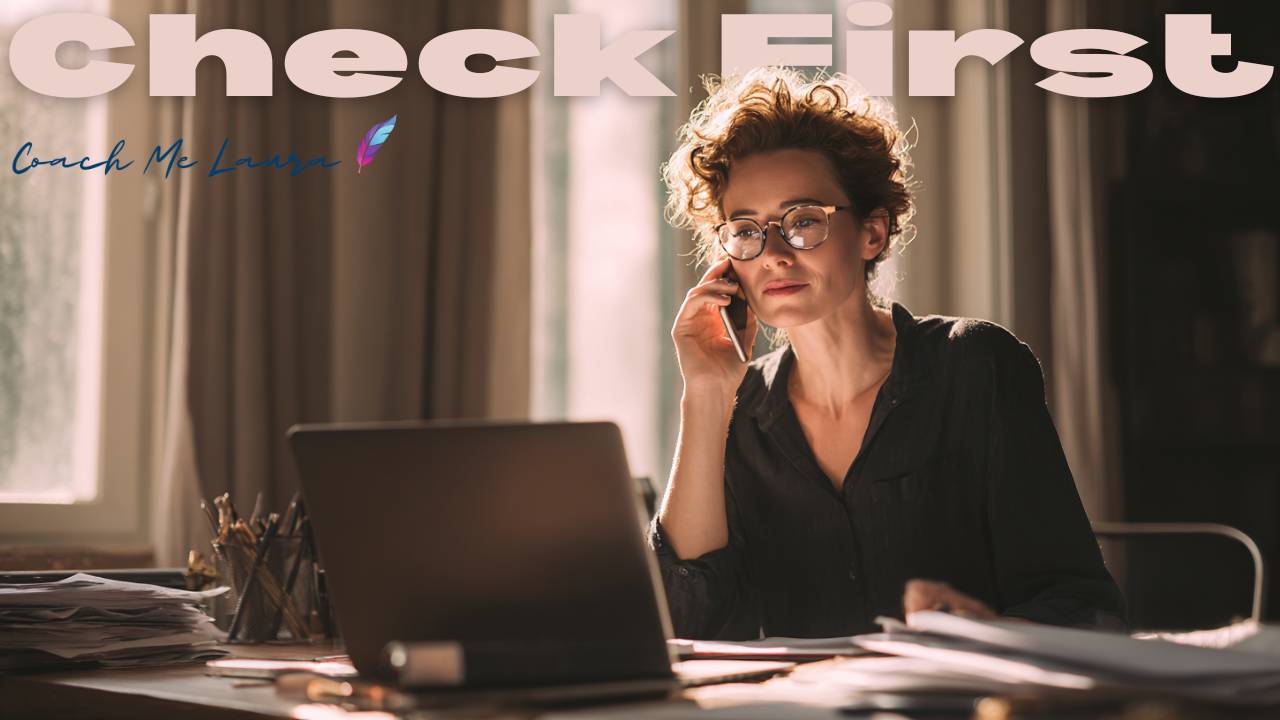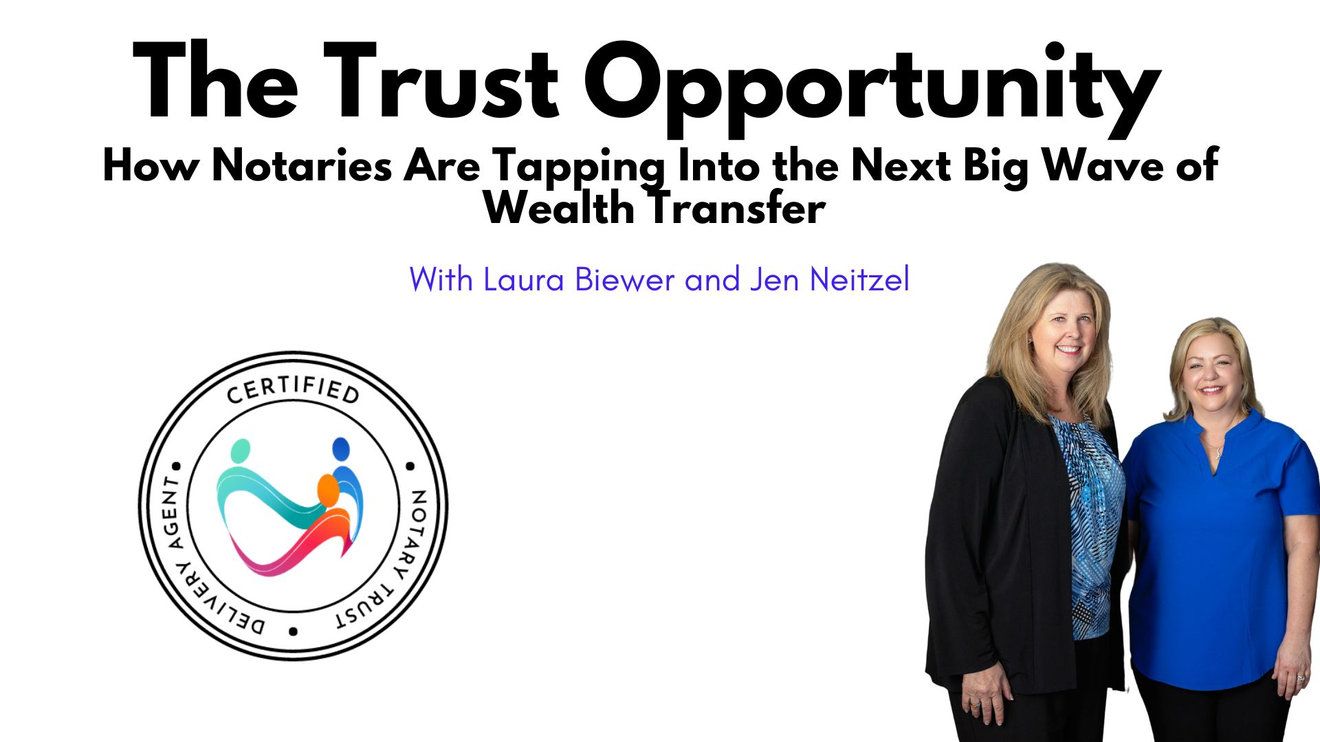Why Smart Notaries Check First!

Why Smart Notaries Check First: Vetting Before You Quote
Not every notary call should become a notary appointment.
Let that sink in.
In a world where mobile notaries are conditioned to hustle for every lead, it's easy to assume that every inquiry should result in booked business. But rushing to say yes can waste time, damage credibility, and ultimately create a frustrating experience for both you and the signer. Smart notaries know that before offering a price—or even agreeing to go—they need to check a few key things first.
Checking first isn't just professional. It’s smart business.
Whether you're new to mobile work or seasoned in specialty notary assignments, here’s why a careful screening process is one of the most important tools in your notary toolkit.
1. Do They Even Need a Mobile Notary?
This might sound obvious, but you’d be surprised how many people don’t realize that their local private mailbox center or UPS store offers notary services.
Mobile notary work offers convenience and flexibility—at a premium. But not everyone needs or is prepared to pay for that level of service. If your caller’s needs are straightforward, time isn’t pressing, and they’re physically able to travel, referring them to a trusted local walk-in notary could be the best solution for _them_—even if it doesn’t result in a job for you.
Don’t look at this as turning business away. Look at it as building goodwill and trust.
Pro tip: build a relationship with your local pack-and-ship stores and let them know you refer clients to them when mobile service isn’t the best fit. They may return the favor when a customer walks in needing something beyond their capabilities—like evening service, an off-site visit, or help with more complex documents.
2. Is There a Qualified Signer?
Before committing, make sure the person who needs to sign is actually ready and able to do so. That means confirming several key qualifications:
-
Do they have valid ID?
State laws vary, but most require government-issued photo ID that’s current or only recently expired. If they don’t have ID, does your state allow credible witnesses? And do they know how to arrange that legally? -
Can they sign unassisted?
Notaries cannot guide someone’s hand or help them form their signature. If the signer has physical challenges, they must still be able to direct the signing process independently. Accommodations are allowed—but assistance is not. -
Are they alert and aware?
Mental capacity matters. The signer must understand what they’re signing and be doing so voluntarily. If there’s doubt, the appointment should not proceed. -
Do they speak your language?
Some states allow translators for notarial acts (such as Colorado, Montana, and Arizona), but in most states, the notary and the signer must communicate directly without an interpreter. If you can’t clearly understand each other, you can’t complete the notarization.
Skipping these checks can lead to wasted trips, awkward situations, or even legal trouble. Better to ask upfront.
3. Is the Document Ready to Go?
Another big piece of the puzzle: the paperwork itself.
-
Is the document complete?
The signer should have the full document in hand—not just a page or two. The notary's role is to witness the signature, not prepare or assemble the document (unless you've agreed to print a complete file in advance). -
Are document witnesses required?
Some documents, such as wills or certain estate papers, require witnesses in addition to the notary. Are they already arranged, or do they expect you to provide them? This affects your logistics—and your pricing. -
Is a scan-back or drop-off involved?
Sometimes a client will expect you to deliver completed documents to another party or upload scanned copies after the signing. These tasks take time and may incur additional costs.
Confirming the document status helps you understand the scope of work—and avoid surprises.
4. Summarize the Scope Before You Price
Before quoting your fee, recap what you’ve just gathered.
This might sound like:
“Okay, so I’ll be traveling to a hospital 25 minutes from me, printing a 15-page advance directive packet, guiding your father through two documents requiring notarization and two requiring witness signatures, and scanning them back to you by 5 p.m. Is that correct?”
This does two things: it confirms you understand the request and sets the stage for your price to reflect the actual value of your service.
You’re not charging just for the notarization. You’re charging for:
-
Travel time and mileage
-
Printing and prep
-
Wait time and guidance
-
Document walkthroughs
-
Any post-signing tasks (scanbacks, drop-offs, etc.)
Quote confidently based on this scope. If anything changes on arrival—more signers, incomplete documents, ID issues—stop and requote immediately. Don’t wait until after the work is done to ask for more money. That puts both you and the client in an awkward position.
A Quick Call Can Save You Hours
It may feel like a lot to ask in that initial call, but investing 5–7 minutes in a thorough check can save you hours of wasted time, unnecessary travel, and difficult situations.
Checking first doesn’t just protect your schedule. It protects your professionalism.
Mobile notaries aren’t just stampers. You’re service providers, problem-solvers, and often the last step before a family gains peace of mind or a transaction moves forward. Be the notary who knows what to ask—before you quote a price or get in the car.
Your clients will thank you. And your business will thrive for it.
Laura
For more tips and group coaching, join me every Saturday 8am PT for Laura’s Inner Circle. Just register for the zoom link at my website www.coachmelaura.com



